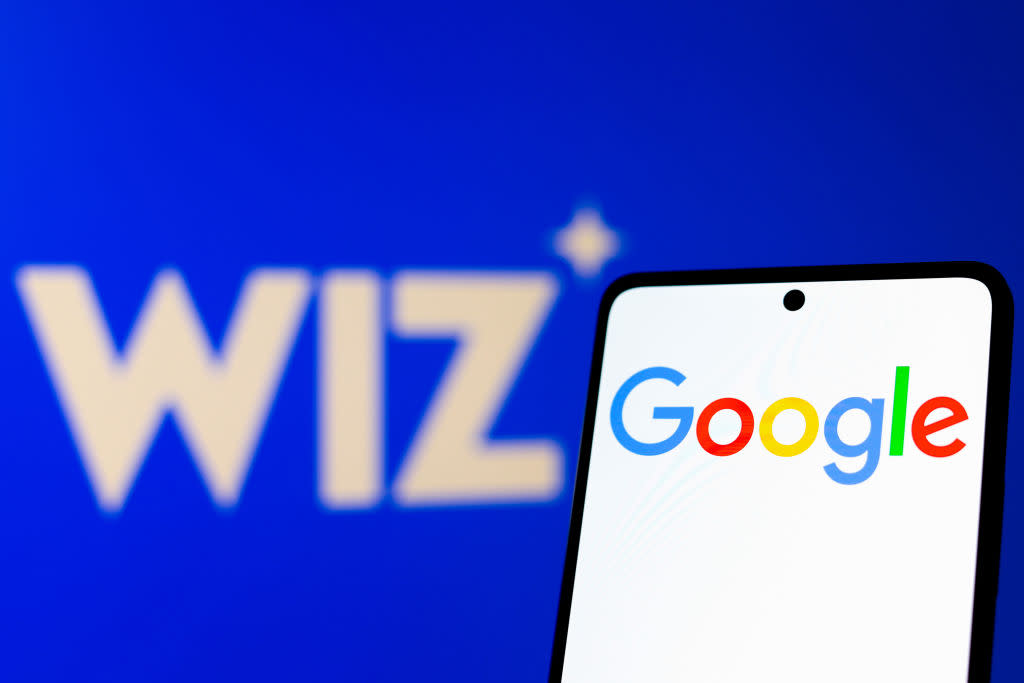Unpacking how Alphabet's rumored Wiz acquisition could affect VC

Alphabet, the parent company of Google, is in advanced talks to acquire cybersecurity startup Wiz for $23 billion, the Wall Street Journal reported on Sunday. TechCrunch's sources heard similar and added that deal discussions could last into next week.
If this deal does end up getting done, it would be Alphabet's largest acquisition yet. It would also be a massive exit for a startup at a time when exits, M&A specifically, aren't rebounding as much as many had predicted heading into 2024. If the deal does get completed, it could affect venture and startups in multiple ways, some more obvious but others much less so.
Angela Lee, a professor at Columbia Business School and a founder of angel investor community 37 Angels, told TechCrunch that if Alphabet acquires Wiz, she does think it could be enough of a catalyst to give the startup M&A market some momentum.
"The size of the acquisition, which is huge — the market is very much ready for an exit of this size," Lee said. "There is this fear that no one wants to be the first to stick their neck out. My hope is that this will revitalize the M&A market."
The market needs that push. Through H1 of 2024, there were 356 startup acquisitions in the U.S., according to PitchBook data. This means 2024 isn't on track to deliver many more deals than 2023, when there were 771. But there is a catch: Lee said that if this does go through, and does start to spark startup M&A, the deals to come likely won't have much impact on the current liquidity crunch that large late-stage startups are facing.
"I don't know how many companies can make acquisitions of this size," Lee said in reference to Alphabet's balance sheet. "This will not fundamentally switch IPOs to M&A. This deal is one that only Google can do."
I reached out to both Wiz and Google for comment and will update this story when I hear back.
Finding fundraising momentum
The deal going through could also have a positive impact on venture fundraising. U.S. venture firm fundraising is currently on track to end the year below 2023's total, $81.5 billion, which was already down 57.4% from 2022, $191.3 billion, according to PitchBook data.
Brian Borton, a VC and growth equity partner at StepStone, reminded me a month ago that VC funds hold company stakes longer than any other asset class — and that's regardless of the current market conditions. LPs don't always love this dynamic, and paired with the current lack of exits, LPs are more hesitant to deploy capital in the current environment. But they still want venture exposure. Borton credits that dynamic as partially why StepStone was so successful in raising its recent secondaries fund, because their strategy allows LPs to get into venture without as long of holding period.
Lee said this deal going through could ease some of LPs' hesitations, not just because of the size, but because Wiz is only 4 years old. Late-stage startups in the U.S. are more than 12 years old on average, according to PitchBook data. Lee said this deal would not only directly affect the numbers, but it could also give VCs needed leverage on the fundraising trail. She added that if she was trying to fundraise right now, she would use it.
"This will make the exit timelines go down, not by number, but by volume," Lee said. "That might potentially excite LPs to come back to the market. As people talk about recovery and how things in 2024 look a lot better than 2022 and 2023, what hasn't come back is VC fundraising. This might be a little bit of push needed for this to happen again."
Driving deals
If Wiz gets acquired, Lee thinks it could prompt VCs to start writing checks again, too. DocSend found that pitch deck activity from both investors and founders rose by double-digit percentages in Q2 2024 compared to the same time last year — despite not much movement yet in actual deals getting closed. Justin Izzo, a lead data and trends researcher at DocSend, told me that he didn't think the exit market opening would have an impact on these early-stage deals as much — an interest rate cut would make more of a difference — since they are so far away from the exit timeline to begin with.
Izzo and I did not talk specifically about Wiz, but Lee and I agree that with Wiz being such a young company, it could have a different effect than if this potential acquisition involved an older player. An 11-year-old startup getting acquired may not move the needle for seed-stage companies, but Lee said a 4-year-old company that exploded that fast, and garnered such a massive exit, definitely could.
"We all have FOMO," Lee said. "Wouldn't we all have loved to be a part of this deal? It's exciting to see a lot of buzz on something that isn't AI."
The future of the deal isn't clear. It could face antitrust pushback. It may not even happen at all. But if it does, it also might be what the venture market needs to start seeing some movement.

